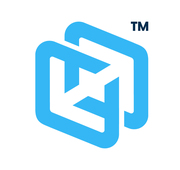CrashPlan cloud-based backup -- expensive but powerful
Overall Satisfaction with Code42 CrashPlan
CrashPlan is used by a number of my clients to back up workstations, servers and NAS devices to the cloud. Most clients use CrashPlan to backup just mission critical machines, though some use it to back up all workstations. With CrashPlan set up properly, backups occur automatically every 15 min or when a file changes with no user intervention, allowing for peace of mind when it comes to protecting one's data.
Pros
- CrashPlan is an extremely powerful and flexible backup program with multiple options of what files to backup, how often to back them up, how much CPU should be used during backup operations (both when a user is present and away), how much bandwidth should be used during backup (again both while a user is present and away), and a multitude of other options.
- Unlike a number of other cloud-based backup services, CrashPlan can backup network drives (such as those from a Synology NAS) - this makes setting up a backup system a lot more simple and cost-effective, as you can connect multiple network drives to a single computer - and backup both that computer and the attached network drives.
- CrashPlan keeps your backup history indefinitely. This means that if you delete a file, a year goes by, and you need to recover that file, you can use CrashPlan to do that. Most other cloud-based backup services only keep history for around 30 days before deleting them from the backup archive.
- Another powerful feature, CrashPlan allows you to not only back up to the CrashPlan Central cloud, but also to an external drive or network drive. Essentially, you can use CrashPlan as an all-in-one backup solution for both local and cloud backups. The local backups are heavily compressed with data deduplication to save space on the backup destination, thus allowing you to keep a long history of backups.
- The cloud-based backups can be heavily encrypted with a custom made encryption key that even CrashPlan can't recover.
Cons
- The CrashPlan program installed on your computer is Java-based vs. a native application. While this makes development for CrashPlan easier, there are a lot of drawbacks to Java programs including more resources usage, less stability, and overall more clunky interface.
- While this was also in the Pros category - CrashPlan is an extremely powerful and flexible program, which adds a great deal of complexity. Setting up CrashPlan isn't always a simple procedure, and depending on the complexity of your backup set, can take a while to tinker around with the settings to get everything to work properly.
- The CrashPlan desktop program consists of a Java program front end, as well as a backend service - there are times when the backend service will crash, and the front end Java program will refuse to load. Typically, restarting the service or restarting the computer will resolve the issue, but sometimes more in-depth troubleshooting is required.
- Perhaps one of the biggest downsides to CrashPlan is its price - at $10/month/computer CrashPlan is more than double the price of some existing backup services such as Backblaze (priced at $50/year/computer). To add salt to the wound, about a year and a half ago, CrashPlan discontinued their consumer options - which were very reasonably priced at $60/year for a single computer or a family plan priced at $150/year for up to 10 computers. When these options were discontinued, the cost of backing up with CrashPlan was effectively doubled for the same feature set.
- Along with the previous example, CrashPlan had the option to back up to a remote machine on a different network with a free Crashplan account. This option was eliminated when the consumer line of services were discontinued.
- While the backup service provided by CrashPlan are still first in class, the above two controversial changes have broken some trust between CrashPlan and its clients.
- It is difficult to put a price on data security. While other backup options can be less expensive -- such as a local backup option that is one-time cost only, or a cloud-based solution that costs less per month - no other backup solution provides the same amount of features and flexibility as CrashPlan.
- CrashPlan's ability to keep your backup archive indefinitely is a huge feature that can be, at times, priceless.
- Clients that were using the consumer version of Crashplan at $60/year/computer faced a difficult choice when that service was discontinued- - stick with CrashPlan and pay more, but keep your existing backup archives, or move to a different solution that is less expensive, but start your backups over from scratch. This was a difficult and time-consuming choice for many clients, which negatively impacted every client's ROI.
- Backblaze and Carbonite
The main advantage that CrashPlan has on competing services is it's ability to back up network drives and keep your backup archives indefinitely. While Backblaze costs significantly less ($50/year/computer vs. $10/year/computer - or $120/year/computer), it does not have the ability to backup network drives and only keep backup archives for 30 days. For some clients, the additional cost of CrashPlan is well worth it. On the other hand, I would never recommend Carbonite, as it is both overpriced and under featured compared to CrashPlan and Backblaze.



Comments
Please log in to join the conversation